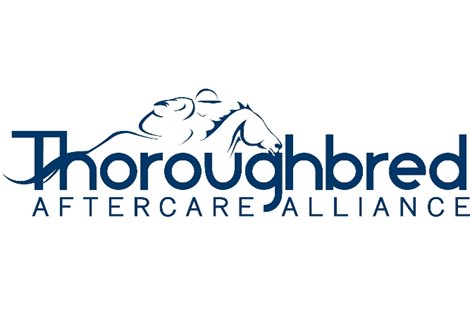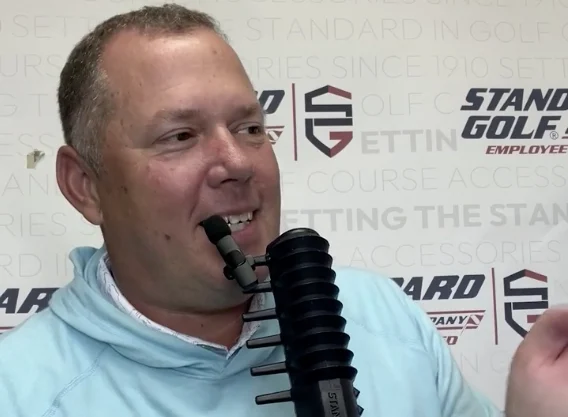Brackpool to Florida Stakeholders: `There Are No Racetracks in Highly Coveted Developed Urban Areas’

The Stronach Group (TSG) has told Florida industry stakeholders they can guarantee racing at Gulfstream Park only through 2028 if a proposed bill to decouple Thoroughbred horseracing from casino licenses passes the state legislature.
In a closed-door meeting with the Florida horsemen and women Wednesday morning—a recording of which was obtained by TDN—Keith Brackpool, a former TSG executive now reportedly working in an advisory capacity for the company, also warned that “if there’s no decoupling, then there’s no guarantee of when we will continue to race,” according to the recording.
The stance has caused trepidation throughout the industry that Gulfstream’s days are numbered.
“We can close down whenever we want to,” Brackpool also warned at a different point in the recording.
Several times throughout the recording, Brackpool discussed how the legislation was needed to help attract investors for redevelopment opportunities at the property, like a new casino and hotel.
Brackpool also repeatedly emphasized the real estate value of the Gulfstream Park property, which is believed to be in the region of 245 acres (about 140 acres of which is reportedly used for horse racing purposes).
“There are no racetracks in highly coveted developed urban areas,” Brackpool said at one point on the recording, discussing the long-term future for the racetrack.
“You’re looking at land here worth several million dollars an acre. And the reality is, nobody can continue to race on land that is worth several million dollars an acre without appropriate redevelopment, at the very least, surrounding the horseracing property,” said Brackpool.
Earlier this month, 1/ST Racing and Gaming—which sits under TSG corporate umbrella—issued a statement saying it had the support of the state’s horsemen’s group for the “decoupling” legislation. The law as it stands right now requires Gulfstream Park to run live racing to operate its casino. In this current deal, the horsemen and women are guaranteed a slice of casino revenues for purses.
At one point during the meeting, one of the attendees asks the crowd (made up of trainers, owners and breeders) how many of them support House Bill 105. According to the recording, there was no show of support for the decoupling legislation.
According to the recording, Brackpool said that he sat down with the horsemen’s organization in August and “guaranteed in writing” the following details if the decoupling legislation passes:
- That TSG would continue to pay the current share of revenues from the casino into the purse account.
- That TSG would pick up “a large part” of the state horsemen and women’s workers’ comp premiums.
- “And we agreed to donate a significant amount of handle to the aftercare program,” said Brackpool.
The annual slice of casino revenues to purses is reportedly around $6.2 million. The additional monies that TSG offered (including workers comp and aftercare support) would increase the amount to $7.5 annually.
Brackpool did not specify for how long those written guarantees were for, according to the recording, though he did repeatedly mention how any successful passage of the decoupling legislation would only guarantee racing at the facility through 2028.
According to the recording, when pressed about the future of the facility after 2028 (even if the legislation passed), Brackpool posited that for horseracing in the state to survive, racing operations might have to switch from Gulfstream Park to a different venue.
“Should the track move to another urban location? Should we move to a more remote location near a breeding facility? Those are the things we need to consider at this stage,” said Brackpool, according to the recording.
At times, Brackpool’s responses appeared to lead to some confusion. While the decoupling legislation has been framed as a means to entice investors for a new casino, Brackpool also downplayed the potential revenues from such a new casino.
“What I am saying to you is that the 140, 150 acres that is used by racing in this vein, is worth so much more than any income from the casino,” Brackpool said, according to recording.
“If we did not decouple, then we would look at development opportunities that did not include a casino,” Brackpool said. “The casino is no easy money,” Brackpool added, warning of the possible advent of iGaming. He also raised the possibility of residential redevelopment.
A little later in the recording, Brackpool was pressed about some of the company’s ventures in other states like Maryland, which has seen, among other things, ownership of Pimlico Race Course transferred from TSG to the state and the establishment of a year-round training facility for Maryland’s horsemen and women operated by an industry run non-profit.
In response, Brackpool mused about Gulfstream Park, “this may well be a case where private ownership of a horseracing facility doesn’t make any sense,” he says on the recording.
Since TSG issued its statement on Jan. 7 saying that it had the support of the state’s horsemen’s organization for the bill, the Thoroughbred Horsemen’s Association came out against the legislation. And those present at Wednesday’s meeting also appeared opposed to such a move.
“Let me just tell you right now, if you all focus on the casino as being the issue that’s going to force this family to continue to race, that will be one of the mistakes that in 20 years from now everybody will be talking about,” said Brackpool when pressed about the proposed casino, according to the recording.
Trainer Dale Romans replied: “In three years they’ll be talking about it, it sounds like to me.”
Related
Could it be Disco Time at the Lecomte? Picks, Odds
The Fair Grounds‘ four-race prep series produced many Triple Crown contenders in recent years. The Lecomte Stakes (G3), its first graded event, will be
Silverbulletday Preview: Golden Gamble a Good Bet; Picks, Odds
A field of eight newly minted sophomore fillies takes aim at the Kentucky Oaks (G1) on Saturday at the Fair Grounds when they go postward for the $150,00
Newgrange is added to Pegasus World Cup final invitations
Photo: Santa Anita / Benoit Photo Five-year-old millionaire Newgrange, a five-time graded-stakes winner, has been elevated to the main
TAA’s Off to the Races Benefit Auction Begins Jan. 23
Thoroughbred Aftercare Alliance announced the dates of their annual Off to the Races online benefit auction featuring VIP racing experience packages with a













